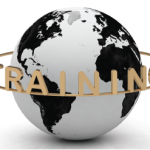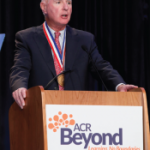With extensive clinical trial data being published daily, how does a rheumatologist stay up to date on latest breakthroughs? Rheumatologists can leverage multiple online resources to stay informed and apply information to patient care…


With extensive clinical trial data being published daily, how does a rheumatologist stay up to date on latest breakthroughs? Rheumatologists can leverage multiple online resources to stay informed and apply information to patient care…

No matter where you practice, rheumatology clinics are extremely busy. And in that hustle and bustle we find an uncomfortable jostling of priorities between delivering optimal care for as many patients as possible and upholding education for teachers and learners at all levels. Because salary usually comes from seeing more and more patients, teaching is…
The ACR’s 2015 Rheumatology Workforce Study Report projects a shortage of 3,800 rheumatologists in the U.S. by 2040. Given the projected rise in the number of adults with arthritis and the anticipated shortfall in the supply of rheumatologists, it is more important than ever to raise awareness about the benefits of early intervention, timely referral and specialized care by a rheumatologist. The ACR’s Board of Directors and advocacy team will be in Washington, D.C., this month to let legislators know how their decisions affect your practices and patients. You can take action—no matter where you are—to help us spread our advocacy messages throughout the month…

SAN DIEGO—Rheumatologists train in quite different ways depending on their global region, said panelists at a session sponsored by the International League of Associations for Rheumatology (ILAR) held at the 2017 ACR/ARHP Annual Meeting in San Diego on Nov. 7. Four association presidents shared training disparities and efforts to bridge gaps. EULAR: Consistency Challenges The…

SAN DIEGO—Christopher Ritchlin, MD, MPH, director of clinical immunology research at the University of Rochester Medical Center in Rochester, N.Y., travels to academic medical centers frequently to present research, and the trips give him a chance to interact with a lot of residents. When he brings up basic science, the conversation often falters. “I’ll say,…

Larry Beresford |
Milestones are at the core of the current system designed to evaluate medical residency and fellowship programs and their participants. But are all milestones meaningful for medical education? This idea was at the center of a debate during the 2017 ACR/ARHP Annual Meeting, during which speakers explored the advantages and drawbacks of using training milestones for rheumatology fellowships…

David Daikh, MD, PhD |
Education is a vital component of what the ACR provides to rheumatology professionals around the world, and the ACR’s commitment to continually expand options to access the latest science and medical education is critical to all involved in the specialty. This dedication is reflected in the ACR’s new mission, vision and brand promise, all of…

Elizabeth Hofheinz, MPH, Med |
It’s one thing for a developing country to lack physicians due to a scarcity of training. It’s quite another for such a vacuum to exist because the physicians were executed. In Cambodia in the 1970s, genocide perpetrated by the Khmer Rouge spared few of the educated class. If they were spared, chances were they lost…

David Daikh, MD, PhD |
Following the 2017 ACR/ARHP Annual Meeting when the formal transition in volunteer leadership occurred, my overwhelming thought has been that it is an honor and privilege to serve you as the 81st president of the ACR. Honor stems from the heritage of excellence and progress that defines this organization. Privilege comes from the opportunity to…

During the two or three short years of a rheumatology fellowship, there is so much to learn: the subtle art of the musculoskeletal examination, the intricacies of the immune system and the indications for a dizzyingly increasing array of new medications, to name just a few topics. One topic that you rarely hear about, but…